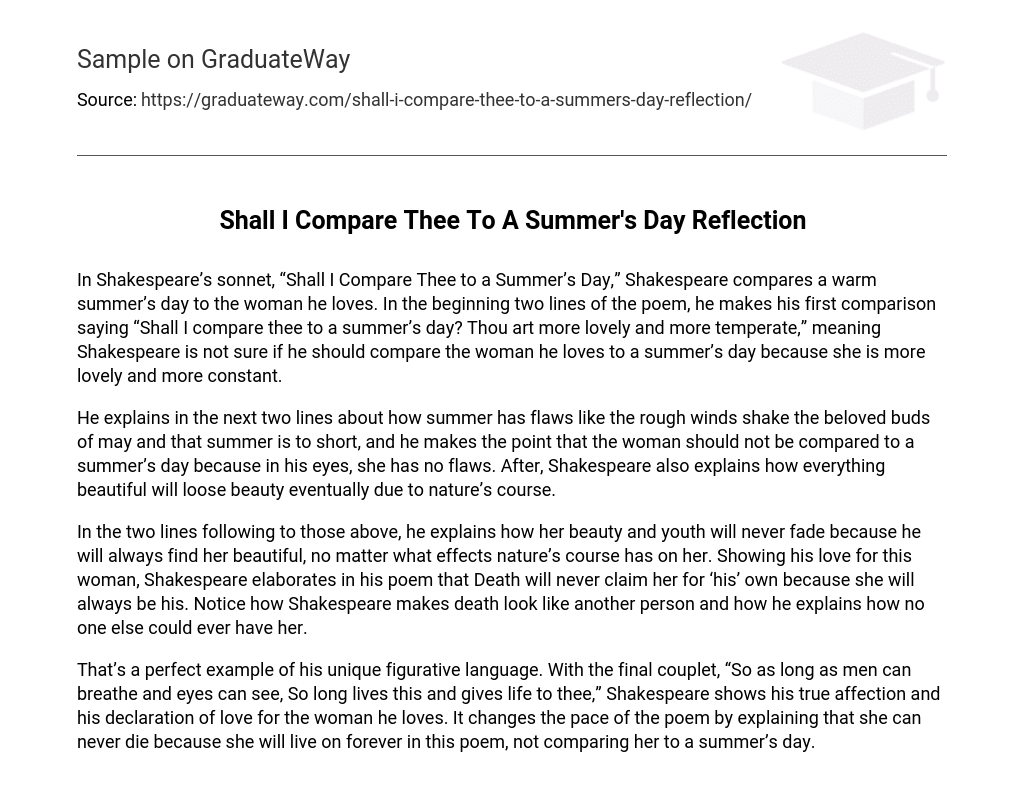Shakespeare’s sonnet, “Shall I Compare Thee to a Summer’s Day,” juxtaposes a warm summer’s day with the object of his affection. In the poem’s opening lines, he contemplates whether he should compare the woman he loves to a summer’s day, acknowledging her greater beauty and more consistent nature.
Shakespeare elaborates in the following lines on the imperfections of summer, such as the harsh winds that dislodge the beloved buds of May and its brevity. He argues that comparing the woman to a summer’s day is unjust, as he perceives her as flawless. Furthermore, Shakespeare asserts that all things of beauty will inevitably diminish in their allure as nature runs its course.
In the subsequent two lines, Shakespeare expresses that despite the inevitable effects of time, the woman’s beauty and youth will remain unfading in his eyes. Demonstrating his deep affection, the poet asserts that Death will never possess her as she will forever belong to him. One can observe Shakespeare’s portrayal of Death as a separate entity and his insistence that no one else could ever claim her.
That is a prime instance of Shakespeare’s distinctive use of figurative language. In the closing couplet, he expresses his deep affection and declares his love for the woman. This couplet alters the rhythm of the poem by asserting that she will never perish because she will continue to live on eternally in this poem, rather than being compared to a summer’s day.





